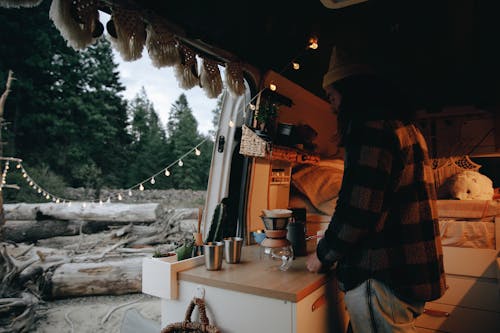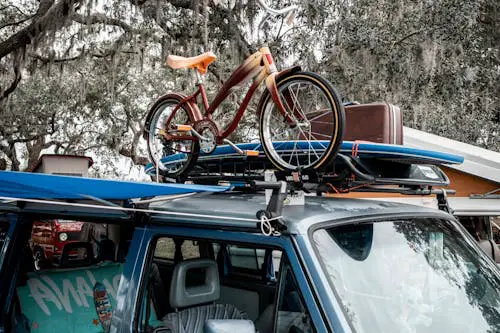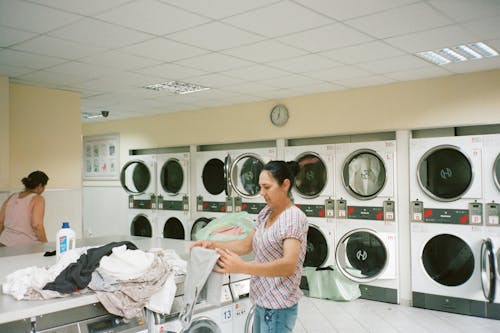1. Packing Light vs. Packing It All

Full-time travelers learn fast that carrying too much weighs you down—literally and mentally. They become ruthless about essentials, re-wearing clothes and skipping “just in case” items. Weekend nomads, on the other hand, often pack like they’re heading on a two-week trip. That difference makes full-timers look minimalist by necessity, while weekenders lean toward comfort.
The reason this divide exists is time. A weekend nomad doesn’t have to lug their stuff through months of buses, flights, and hostel stairs. For a short trip, it’s easier to throw extra outfits and gear into a bag without consequences. A full-timer knows every extra pound will eventually be regretted.
2. Slow Travel vs. Checklist Travel

Full-timers usually pace themselves, spending weeks in one city to get the rhythm of daily life. They prioritize local cafés, grocery runs, and community events over sightseeing marathons. Weekend nomads, though, pack every sight possible into 48 hours. It’s an efficiency game that looks exhausting to a long-term traveler.
The reason is opportunity. A weekend nomad may only visit a place once and wants to maximize it. A full-timer can afford to miss a few things because staying longer balances it out. That shift in mindset creates totally different itineraries.
3. Housing Choices vs. Hotels

Full-time travelers often gravitate toward monthly rentals, co-living spaces, or long Airbnb stays. They’re looking for affordability, stability, and sometimes a kitchen to cook meals. Weekend nomads, however, are more likely to splurge on a hotel or short Airbnb with all the extras. Their trip is short, so convenience outweighs cost.
The divide is budget management. Living on the road full-time requires stretching dollars over months or even years. A weekend nomad is working with vacation money, not survival money. That fundamental difference shapes their lodging priorities.
4. Social Ties vs. Solo Escapes

For full-timers, building some kind of community becomes essential. They join coworking groups, connect with fellow nomads, or even keep up routines with locals. Weekend nomads don’t usually have the same need; their trips are too short to root anywhere. Their experience leans more toward a solo reset or fun with a small group of friends.
The distinction comes from time spent. Full-timers can feel lonely if they don’t establish connections, because constant movement can be isolating. Weekend nomads still have home communities waiting for them. That makes social urgency much lower.
5. Gear for Survival vs. Gear for Fun

Full-time travelers carefully choose multipurpose gear like universal chargers, packing cubes, or durable shoes. Their items are built for longevity, not novelty. Weekend nomads are more likely to bring single-use gadgets or stylish clothes for photos. It’s less about survival and more about enjoying the short escape.
The difference is wear and tear. Full-timers test their gear every single day and can’t afford to waste space on things that break or aren’t useful. Weekend nomads don’t put the same strain on their items, so they can carry extras just for fun. That contrast often shows up in backpacks versus roller bags.
6. Money Mindset vs. Splurge Mindset

A full-time traveler often operates on a tight budget because travel is their lifestyle. They’re thinking about sustainability—stretching meals, finding free activities, and negotiating stays. Weekend nomads, though, are more likely to splurge. They might book tours, eat at the best restaurants, and not stress the price tag.
The reason is scale. Spending $200 on a weekend trip is different from spending $200 every week for a year. A full-timer has to think in terms of months ahead, while a weekend nomad thinks in terms of maximizing a short window. That creates vastly different financial habits.
7. Travel Fatigue vs. Travel Energy

Full-timers know what it feels like to burn out on constant movement. They sometimes skip attractions just because they’re tired of being “on.” Weekend nomads, though, arrive energized and ready to soak up every second. That fresh enthusiasm can make them seem more adventurous.
The divide comes from exposure. Full-time travel can feel like a job after a while, with logistics and planning becoming draining. Weekend nomads, with limited time, don’t reach that fatigue point. Their energy spikes, while full-timers often need balance.
8. Internet Priority vs. Disconnect Priority

For many full-timers, stable internet is non-negotiable—it’s their lifeline for work. They’ll even pick destinations based on Wi-Fi reliability. Weekend nomads, though, often welcome being offline. They see disconnecting as part of the vacation.
The reason is work dependency. Digital nomads or remote workers need connectivity for income. Weekend travelers usually don’t have that tie, so being unreachable feels freeing instead of stressful. That creates a different relationship with technology while traveling.
9. Routine vs. Break from Routine

Full-time travelers build routines on the road: regular gym visits, grocery runs, and set work hours. It’s how they create stability in constant movement. Weekend nomads, on the other hand, crave the opposite. They want a break from routine, not a continuation of it.
The contrast comes from perspective. For a full-timer, routine is sanity. Without it, burnout comes quickly. For a weekend traveler, routine is exactly what they’re escaping.
10. Long-Term Visas vs. Tourist Stamps

Full-timers think ahead about visas, renewals, and border runs. It’s part of sustaining their lifestyle legally. Weekend nomads usually don’t worry—short tourist visas cover them easily. That bureaucratic layer is invisible unless you’re living abroad.
The divide exists because of stay length. A full-timer might spend months in one place and face restrictions. A weekend nomad rarely stays long enough for paperwork to matter. The complexity of travel law only hits one group.
11. Dealing with Laundry vs. Avoiding Laundry

Full-timers can’t escape laundry—it becomes a major part of their rhythm. They find laundromats, wash by hand, or book stays with machines. Weekend nomads usually pack enough to avoid doing laundry on a short trip. Their clothes last until they’re back home.
The difference is necessity. For someone on the road full-time, clean clothes are survival. For someone gone two or three days, laundry is a non-issue. That small detail highlights the practical differences in lifestyle.
12. Health on the Road vs. Short-Term Indulgence

Full-time travelers prioritize staying healthy because it impacts their longevity. They try to balance diets, exercise, and sleep despite constant movement. Weekend nomads often indulge—eating out, drinking more, and cutting sleep short to fit in fun. Their trips are too short for health consequences to catch up.
The difference lies in sustainability. A full-timer knows poor habits add up quickly when every day is travel. A weekend traveler treats indulgence as part of the escape. What feels like a vacation treat to one is a lifestyle hazard to the other.
13. Identity vs. Escape

For full-time travelers, travel isn’t just something they do—it’s part of who they are. Their identity often gets tied to being nomadic, shaping how they see themselves. Weekend nomads usually see travel as an escape from their main identity at home. It’s a reset button, not a definition.
The difference is scale of commitment. A full-timer reshapes life around travel, while a weekend nomad inserts travel into life’s gaps. That creates two entirely different relationships with the road. For one, it’s home; for the other, it’s a getaway.
This post 13 Unspoken Rules That Divide Full-Timers From Weekend Nomads was first published on Greenhouse Black.
